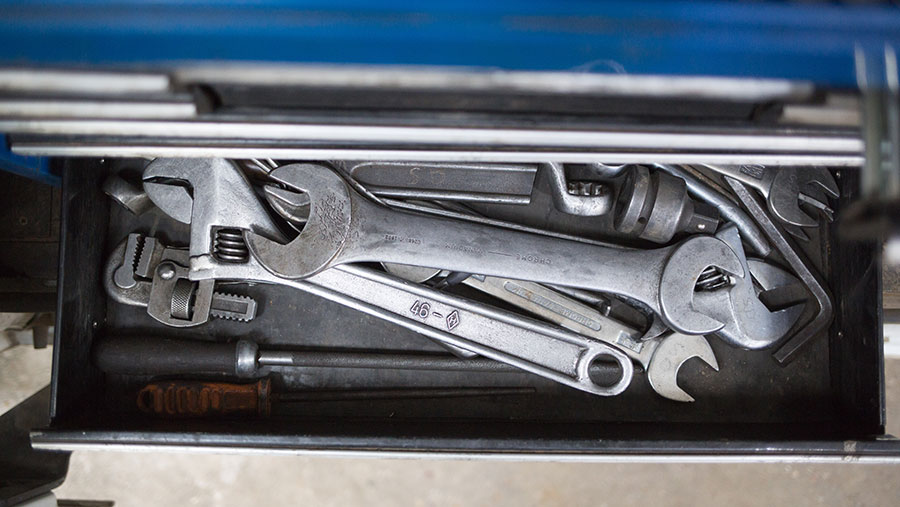Opinion: Farming on ‘grease, spanners and mindless optimism’
 © Tim Scrivener
© Tim Scrivener I learned to be eco-friendly by accident, and even now I’m not completely sure I’ve got the hang of it.
As a sandwich student from Harper Adams, I spent a memorable placement year working on a commercial farm in Zimbabwe.
This was a big business employing hundreds of people, yet it operated with a very different mindset when it came to finance, capital and replacement policies.
See also: Opinion – being a farmer has more upsides that downsides
Partly because of their history, and definitely because of the location, I found Zimbabwean farmers imbued with a philosophy of make do and mend – even the very rich ones.
In complete contrast to our habits of throwing out a tractor past its warranty date, or disposing of a household item because it is getting tired or unfashionable, everything was repairable.
When a tractor got to 40,000 hours (yes, 40,000) it would probably just have another engine rebuild and keep going.
I knew a fellow who drove hundreds of miles through the dirt roads stopping at regular intervals to remove the sump of his truck and replace a couple of shell bearings on the worn-out crankshaft when the knocking noises got too loud to ignore.
To him, this was a minor inconvenience – and a new truck wasn’t available even if he’d had the funds to buy one.
When it came to tools, implements, ornaments, fuel tanks, these guys could – and did – make almost anything with a stick welder and an angle grinder.
Nobody was “green” – this was the 1990s, I’m not sure we even knew what recycling was – but nothing got thrown away.
Even the farm scrapheap had parts earmarked for later projects. This mentality pervaded everything. Aluminium irrigation pipes had to be guarded as enterprising thieves would cut them up and beat them into cooking pots.
So, back here, in the British farming world, I feel I must occasionally apologise to my farming neighbours for my eccentricities. My newest tractor is 15 years old (I think it might actually be appreciating in value).
I’m no expert mechanic, but through experience I know where just about every nut and bolt goes, which can be handy if it breaks down on a Sunday afternoon.
This approach can bring immense satisfaction.
Diagnosing and repairing a non-running engine or watching the baler going again after a challenging breakdown, for example, can be as rewarding as calving a difficult cow or combining a perfect sample from a field of flat wheat.
There is so much on offer in farming, I guess we can all find our niche somewhere.
Such a system cannot possibly work without the help of some great local engineering shops and knowledgeable parts suppliers, to say nothing of generous members of farming forums who give so freely of their knowledge and advice.
I do my best to offer what I know in return – the propensity of farmers to help each other out rarely wins the recognition it deserves.
In a future world of disposable everything and robot tractors, we are in danger of losing a great store of knowledge and a lot of our self-reliance.
I suppose some people might have perfectly reasonable objections to grease, spanners and mindless optimism.
I’ll be round their place later, to get another 20 years’ cheap farming out of the stuff they’re throwing away.

